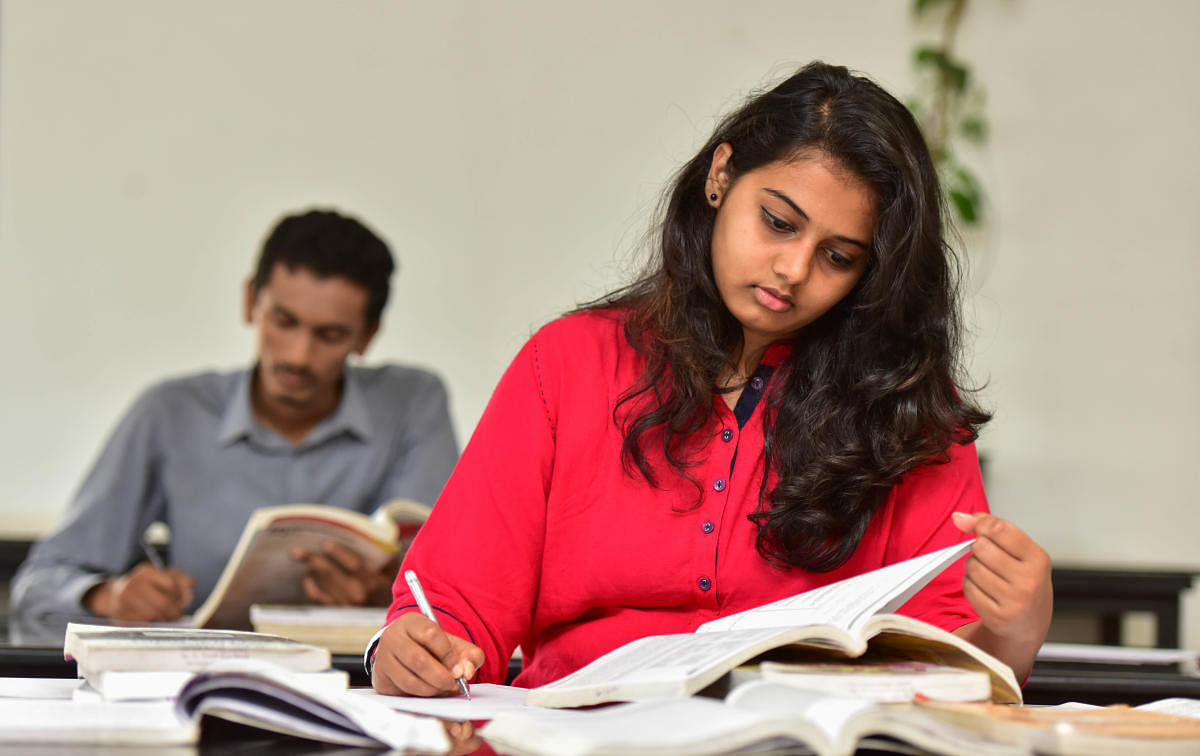There are several ways a student’s learning can be assessed. One of them is through open-book exams which allow students to refer to notes, texts, references and other resource material while writing an exam. Most open-book exams have time limits that last two to three hours. Some universities also conduct take-home open-book exams — question papers are handed out, students answer them at home and submit the answer script in a day or two. In this case, students have the liberty to refer to more material.
Open-book exams focus on how well the student has understood the source material, they promote higher-order thinking, interpretation and analytical skills of students.
“Exams are intended to test a particular skill, and the type of exam depends on its objective. While conventional exams mainly test memory skills, open-book exams are application-based and are tougher as they require original thinking,” says Indira Vijaysimha, a retired professor and founder of an alternative learning centre. While open-book exams are common in foreign universities, they are only opted for in premier institutes in India.
Now, owing to the pandemic, other universities too have opted for these exams but online. Visvesvaraya Technological University has put forward a proposal to hold open-book exams in a few engineering courses to encourage better understanding.
Promote at all levels
Educationists feel that there is a need to promote such exams at the school, graduation and post-graduation levels. This, they feel, will discourage rote-learning. Instead of learning concepts by-heart, students can connect or apply the same to real-life situations and truly appreciate what they are learning.
While it could be difficult to bring about a drastic change in the exam pattern, educationists suggest introducing such exams in a phased manner — giving both teachers and students time to familiarise themselves.
“Open-book exams call for a paradigm shift in the way we look at questions. It requires a higher-level of framing questions which test understanding in contrast to straightforward ones that require reproducing answers from textbooks and class notes. Therefore, capacity building of teachers is the foremost aspect to be considered,” says Rishikesh B S, who heads the Hub for Education, Law and Policy at Azim Premji University.
Rishikesh says our education system needs to switch to project-based learning from textbook learning. The goal should be to encourage students to find solutions to problems that crop up and to apply classroom learning to real life events.
The present exam system, according to him, mainly focuses on the assessment ‘of learning’ (testing students’ learning at the end of a chapter). Assessment ‘for learning’ is based on a continuous feedback mechanism, wherein teachers assess students’ learning, and modify teaching to make it more effective and ‘as learning’ which allows students to learn as they are assessed, both of which aren’t taking place in the classroom.
Preparing for open-book exams
Open-book exams require students to apply, analyse, synthesise, evaluate, compare and contrast information. While they are allowed to refer to notes, only if they know the contents thoroughly can they quickly find relevant information.
“As these exams gauge how much a student has understood a concept, students have to know the literature well. This requires extensive reading. So students need to develop reading skills, which they currently lack,” says Vasundara Priya Mahadev, assistant professor, Bangalore University.
Students therefore, have to have a strong understanding of the course content. So, make learning an everyday habit is essential. Understand what exactly you are being tested on and prepare accordingly. Know where and how to apply the concepts you are learning.
Know what materials you are allowed to refer to during exams and prepare your notes accordingly.
Organise notes in a way that you can find the relevant information easily. Avoid long paragraphs, paraphrase and keep them simple. Too many sources of material will cause distraction.
The best way to prepare for any exam is to answer previous years’ or practice questions. Concentrate on the answer structure and time management. Always write concise and to-the point answers. This will give you time to answer other questions.
Finally, remember to enjoy the learning process. Every new concept you learn is taking you closer to your goal.
